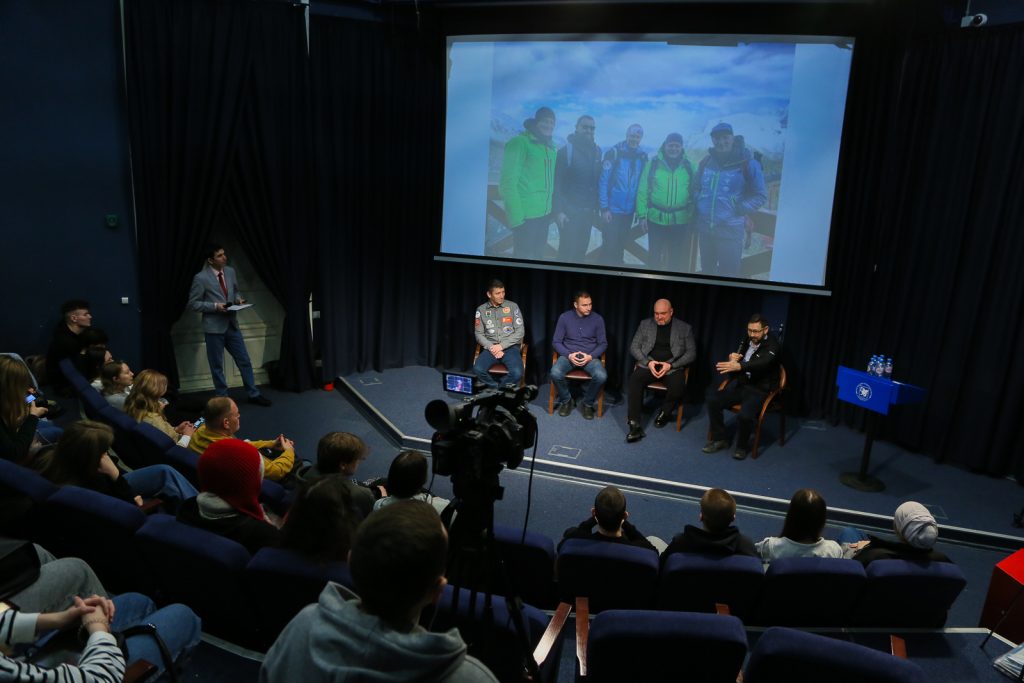Explorers of the Antarctica explain the importance of the southern continent




Four scientists met with students in the Media Show Room on 28 January on the 205th anniversary of the discovery of the Antarctica.
They were Vice-Rector for Eartth Sciences Danis Nurgaliev (participant of the 67th Russian Antarctic expedition), and three participants of the Antarctica 100 project – Chairman of the Tatarstan Branch of the Russian Geographical Society Dmitry Shiller, Deputy Head of the Leonov Underwater Research Team Maxim Astakhov, and underwater photographer and yachtsman Ilgiz Khusainov.
The southern continent was discovered in 1819 by Fabian Gottlieb von Bellingshausen‘s and Mikhail Lazarev‘s circumnavigating expedition. The expedition’s scientist and diarist was astronomer, future rector of Kazan University Ivan Simonov.
The Antarctica 100 project was aimed at researching safe underwater diving and work techniques in the polar region. The team also tested various underwater equipment.
“The third objective was to collect materials from a 100 meter depth for research. All objectives were met. The diving itself was also recognized as a record – 97 meters near the Antarctic shore until we reached the bottom; the previous record had been about 20 meters. We planned to reach 100 meters, hence the name of the project,” said Shiller. “It is indeed a very unwelcoming and harsh land. It’s a challenge that you can mark in your biography with an exclamation – just for yourself. This is a story of walking on the fringe of your abilities, a story of ‘I need to do this’ kind. Your inner chilling fear can only be overcome through willpower and your understanding of objectives.”
The speakers shared little facts from their trips – how they saw penguins, how they went ashore to speak with polar researchers, how they reached a warm place and daydreamed of oranges.
Maxim Astakhov said, “The water was minus 3 degrees cold when we crossed the Drake Passage. We shed some weight after suffering through rolling. You just have no appetite because of seasickness; after that, our watertight suits became a bit loose and started leaking. So we had to keep in the water 2 hours and 20 minutes after the diving because we just couldn’t get out together.”
Ilgiz Khusainov opined that polar explorers just don’t have the right to make a mistake. They are thousands of kilometers from any civilization. Moreover, one can only take 40 kg of belongings in an expedition.
The Antarctica is sometimes called ‘the window to the space’. Extreme temperatures, thinner air and elevations create unique conditions for scientific research. Dmitry Shiller noted that a part of pre-Antarctic training is held in Russia’s Star City, the famous educational facility for cosmonauts.
Students then asked many questions, including some about possible participation in Antarctic expeditions in any capacity.
Each of the guests wished the young people well. Vice-Rector Nurgaliev concluded, “It’s good to try to see something special in your life, something that stays in memory. I always say that I fulfilled a little village boy’s dream who thought he’d never go there. I wish you all to have and fulfill such a dream.”

